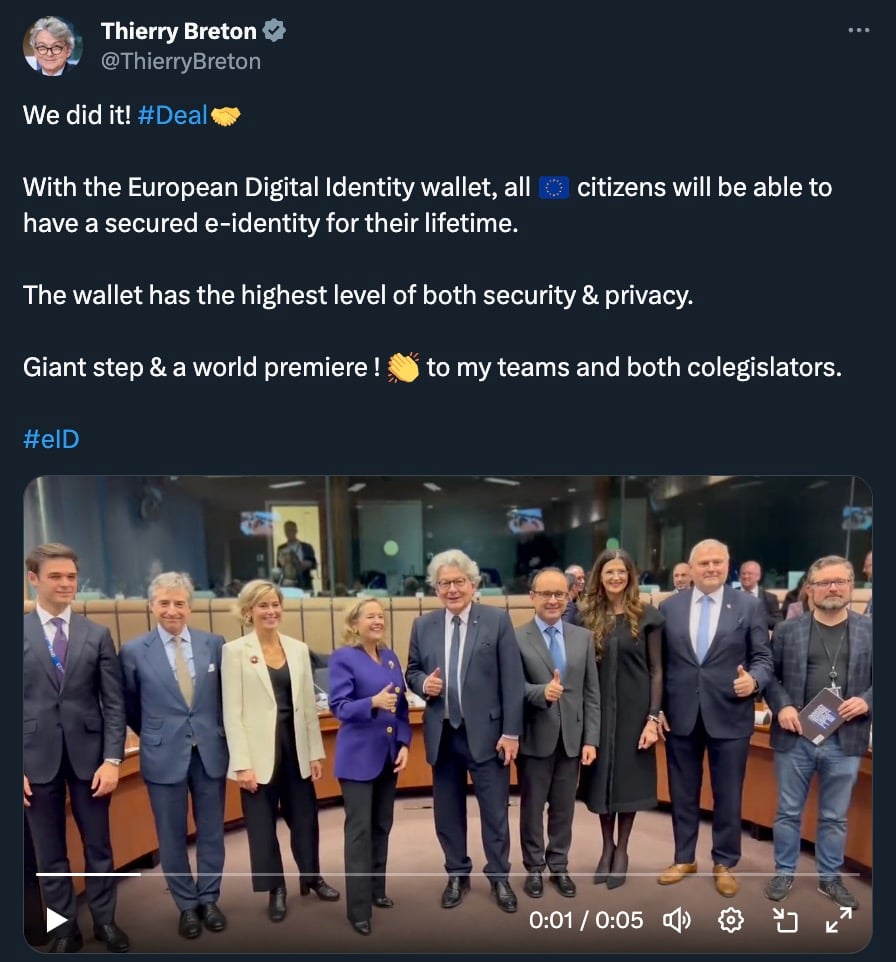by Didi Rankovic, Reclaim The Net:
 Combining digital ID with centrally-controlled currency.
Combining digital ID with centrally-controlled currency.
The European Parliament (EP) and the bloc’s member-countries have reached a provisional deal on the digital ID framework, and now EU Commissioner for Internal Market Thierry Breton is reported as suggesting CBDC (central bank digital currency) integration should follow.
The provisional agreement on what’s known as the eID (European Digital Identity) regulation is being presented by the EU Council (that worked on the agreement together with the EP) as a safe and trusted option, and also one that “protects democratic rights and values.”
TRUTH LIVES on at https://sgtreport.tv/
Opponents, like Dutch EP member (MEP) Rob Roos, took to X, though, to announce the news, and brand it as “very bad.” The reason, according to Roos, is that in the process of striking a deal the two EU institutions “ignored all the privacy experts and security specialists.”
Commissioner Breton wasted no time – perhaps on purpose, building on a momentum that was no doubt difficult to get going – to say that now that there is a Digital ID Wallet, “we have to put something in it.”
The MEP sees his comments as suggesting that Breton is talking about a link between eID and (future) CBDCs.
In his own post on X, Breton was in a positively celebratory mood, congratulating those who worked on this outcome, calling it, “a giant step and a world premiere.”

And one that, according to him, guarantees top levels of security and privacy – while offering citizens of EU countries “a secured e-identity for their lifetime.”
Roos, however, believes that something can still be done about this, as the EP is yet to vote on the agreement – and is urging citizens to contact their MEPs, tell them they oppose the looming regulation, and ask them to vote against.
Only last week, reports said that as many as 300 scientists and security experts and researchers agreed that something should be done about EU’s ID scheme – namely, that the bloc should “rethink” its plans.
Specifically referring to the eIDAS Regulation – which should allow for mutual recognition of eID schemes across the EU – these experts said it, “as proposed in its current form, will not result in adequate technological safeguards for citizens and businesses, as intended. In fact, it will very likely result in less security for all.”



